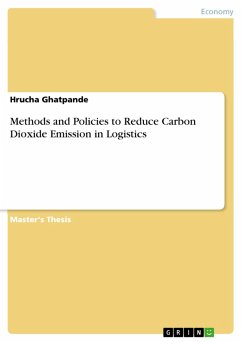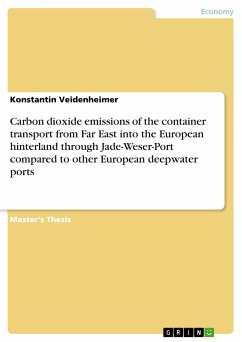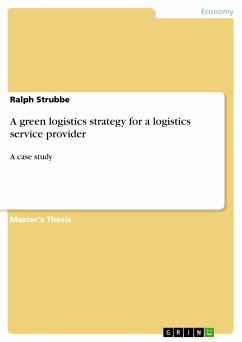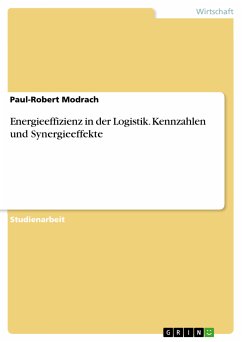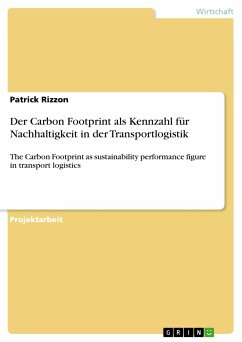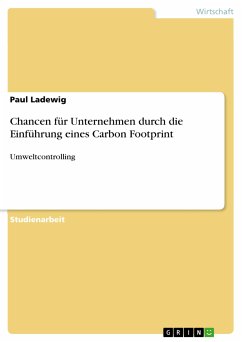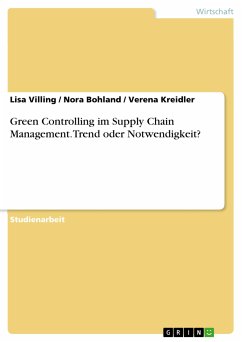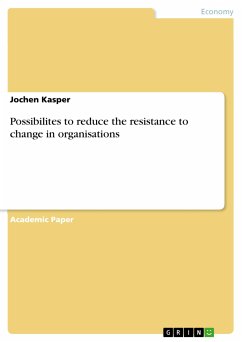Master's Thesis from the year 2021 in the subject Business economics - Supply, Production, Logistics, grade: 2.6, University of Applied Sciences Berlin, course: MBA&E Global Procurement, language: English, abstract: The report is focused on carbon dioxide emissions in the logistics industry. It evaluates some segments of the logistics industry that how carbon dioxide emission is takes place in the logistics operations. Global warming and climate control elements are turning into a genuine worldwide concern. The enactment is turning into a fundamental plan to control the measure of carbon dioxide discharge that may impact the entire world in upcoming years. To figure out this issue, the research is conducted to investigate the methods and policies which support the logistics operation to lessen or control the carbon dioxide emission. The report has some insight that how various logistics factors are responsible to influence the level of carbon dioxide. Furthermore, various opportunities to reduce transportation as well as warehouse-related carbon dioxide emission are identified. With the analysis of different industries, the most promising and feasible methods for logistics operations are determined such as increasing load factor, modal shift, alternative fuels, electric forklifts. In addition to this, analysis of environmental policies is also determined namely carbon emission trading, carbon tax. The impacts on organizations after applications of studied methods and policies have been also reviewed. The research outcome has an overall contribution to green logistics management.
Dieser Download kann aus rechtlichen Gründen nur mit Rechnungsadresse in A, B, BG, CY, CZ, D, DK, EW, E, FIN, F, GR, HR, H, IRL, I, LT, L, LR, M, NL, PL, P, R, S, SLO, SK ausgeliefert werden.

